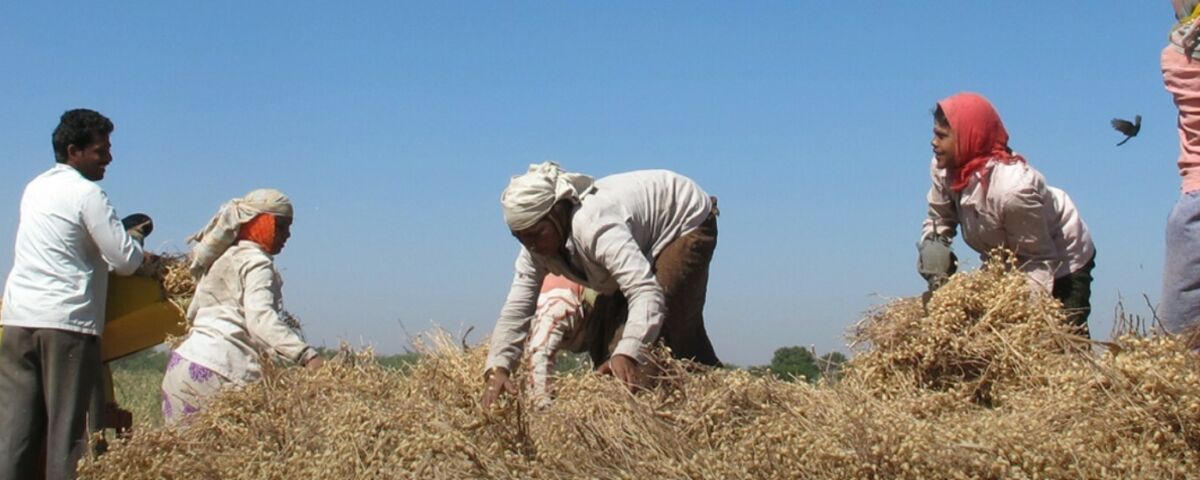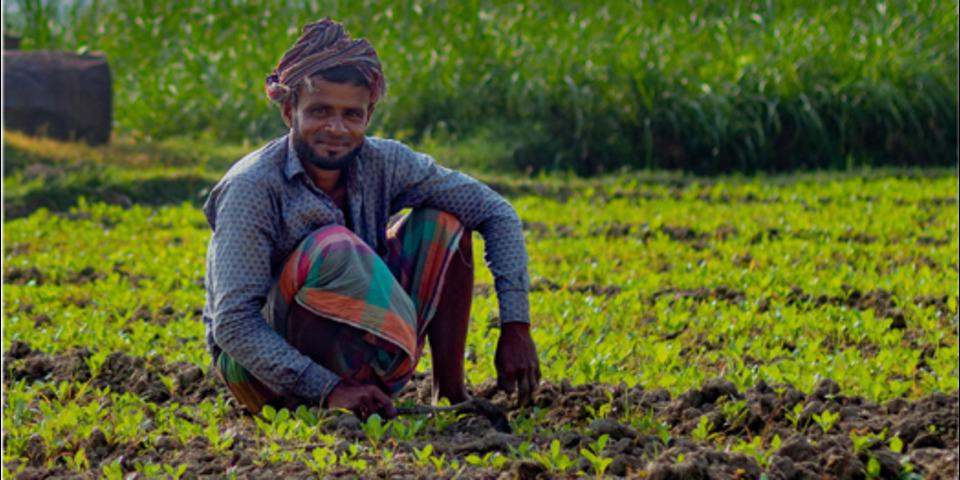





Keep this story going! Share below!
On a cold November morning in Punjab, smoke hangs heavily in the air as farmers burn crop residue, knowing it will choke families and cities alike. Takachar transforms this despair into hope by converting residue into biochar directly in the field, improving soil health, generating income, and reducing emissions. This innovation addresses climate action and responsible consumption, proving that small machines can have a global impact while empowering communities.
On harvest mornings across India, thick smoke rises as farmers set fire to leftover straw and husks, trapped by time and limited options. Takachar intervenes with portable biomass conversion units, turning what would have become smoke into biochar, a carbon-rich product that nourishes soil, creates income, and reduces pollution.
The T100 model, capable of handling 100 kilograms of residue per hour, serves smaller farms, while the T1000 model, capable of handling 1,000 kilograms per hour, manages high-volume operations, ensuring flexibility across farm sizes. Units can be rented or purchased, making the solution accessible to both smallholders and larger farms. By processing crop residue in the field, Takachar avoids costly transportation, respects tight sowing windows, and empowers farmers directly.
Amit Sharma, Product Development Lead, reflects:
“Planet and climate have no boundaries.”
Takachar’s impact stretches globally. In Kenya alone, 30,000 farmers have been empowered, ten million United States dollars added to rural livelihoods, 10,000 tons of crop waste recycled, and 200,000 tons of carbon dioxide equivalent prevented from entering the atmosphere. Its operational footprint spans India, Kenya, North America, and Southeast Asia, adapting to diverse agricultural policies and market realities. By providing biochar solutions that are economically viable where synthetic fertilizers are not subsidized, Takachar demonstrates that human-centered innovation can scale globally while remaining locally relevant.

From burning fields to empowered livelihoods.
For Takachar, inspiration begins with human experience. Vidyut Mohan grew up witnessing Delhi’s skies fill with smoke each harvest, while Kevin Kung explored biomass conversion at the Massachusetts Institute of Technology. Together, they envisioned a solution where despair could be transformed into opportunity.
Amit Sharma, Product Development Lead, provides a powerful personal lens into this journey. Early in his career, he worked in the luxury automotive industry, designing high-end machines for an affluent consumer market. Surrounded by polished cars and a culture of materialism, he experienced a profound sense of emptiness. He recalls:
“I realized my life could not just be about making fancy machines for a consumerist market.”
Raised in a farming family in one of Eastern Uttar Pradesh’s most underdeveloped districts, Amit understood the daily struggle of farmers and the urgency of agricultural sustainability. The contrast between luxury engineering and the pressing needs of smallholder farmers compelled him to take a bold decision: to leave comfort and stability behind, and dedicate his expertise to solving real-world, urgent problems.
Faced with India’s one hundred billion United States dollars annual crop residue and only fifteen to twenty days between rice harvest and wheat sowing, he understood that a conventional, centralized solution would fail. Takachar’s innovation had to mirror the distribution of the problem, reaching farmers directly in their fields. Amit’s journey exemplifies a commitment to purpose over profit, showing how professional skill can be redirected to create social, environmental, and economic impact.
Every plume of smoke, every struggling farmer, and every wasted harvest reinforced his mission: reduce emissions, improve livelihoods, and empower communities. This empathy-driven approach continues to guide Takachar’s expansion and operations globally.
The smoke that once suffocated fields now gives way to soil that thrives and communities that breathe easier. Takachar’s units prevent the release of harmful pollutants, sequester carbon in the soil for decades, and reduce health risks associated with crop residue burning.
Farmers save seventy percent in operational costs, biochar boosts yields by twenty-two percent, and carbon credit markets provide new income streams. Women operating portable units gain recognition and agency, breaking traditional barriers.
Globally, Takachar spans India, Kenya, North America, and Southeast Asia, with ambitions to reach fifty countries within five years. In Kenya alone, the lives of 30,000 farmers have been positively transformed, with 10,000 tons of crop waste recycled and 200,000 tons of carbon dioxide equivalent prevented. These outcomes represent cleaner air, empowered communities, and healthier ecosystems, demonstrating that human-centered solutions can ripple into global change.
Takachar blends purpose with profit. Portable units create value in multiple markets — biofuels, fertilizers, activated carbon, and carbon credits — while flexible purchase or rental options make the solution inclusive. Strategic partnerships with Farmer Producer Organizations, international foundations, and agencies extend the company’s reach to underserved farming communities.
The business prospers because it addresses real, urgent problems. Revenue increases, new markets open, and employees engage in meaningful, mission-driven work. By showing that sustainability and profitability can coexist, Takachar attracts investment, talent, and opportunities to scale globally.
At its core, Takachar’s impact is human: cleaner air, empowered women, preserved livelihoods, and hope restored. By combining empathy with innovation, the company grows while serving communities, demonstrating that businesses can thrive while putting people and planet first.
On cold harvest mornings, smoke once choked villages and cities, affecting families’ health and livelihoods. Takachar’s innovation turns this crisis into opportunity, converting crop residue into biochar that nourishes soil, reduces air pollution, and mitigates climate change. By directly addressing Climate Action (Goal 13), it prevents the release of harmful pollutants, sequesters carbon in the soil for decades, and improves the resilience of agricultural ecosystems.
The innovation also promotes Responsible Consumption and Production (Goal 12) by transforming waste into valuable resources. Farmers increase crop yields by approximately 22 percent, contributing indirectly to Zero Hunger (Goal 2) through improved food security and sustainable farming practices. Furthermore, the creation of new income streams via biochar sales and carbon credits supports Decent Work and Economic Growth (Goal 8), empowering communities to achieve financial stability while adopting environmentally responsible practices.
Takachar’s portable biomass units exemplify Industry, Innovation and Infrastructure (Goal 9), as scalable technology meets farmers where they are, enabling a decentralized, human-centered solution to a global problem. Women operating the units gain agency and recognition, demonstrating that socially conscious innovation can enhance equality and community well-being.
Across continents — from India to Kenya, North America, and Southeast Asia — Takachar demonstrates that a thoughtfully designed solution can generate simultaneous environmental, social, and economic benefits. By linking human-centered design with measurable impact, this innovation exemplifies how local actions, guided by empathy and science, can ripple into global change, making it a model for sustainable development that fulfills multiple UN Goals.
Get stories of positive business innovations from around the world delivered right to your inbox.

Takachar is a sustainable agriculture and clean technology company headquartered in New Delhi, India. It develops portable biomass conversion units that transform agricultural waste into biochar, a valuable soil enhancer. The company empowers farmers, improves rural livelihoods, and reduces carbon emissions by preventing crop residue burning. With operations spanning India, Africa, North America, and Southeast Asia, Takachar combines environmental impact with economic opportunity, helping communities thrive while addressing climate challenges globally.